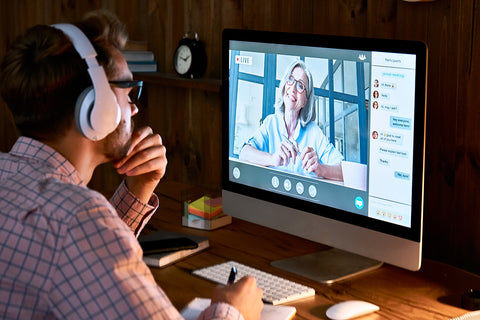Education

The concept of a “healthy brain” is fairly new, but one that is growing in importance. Here at Procera, we believe that the brain can be positively impacted by dietary choices, brain-specific supplementation, and lifestyle habits. Once it was thought that it was only important to look after the developing brain (birth until the early 20s).

What is your go-to method for stress relief? Do you take a walk? Listen to music? Do you binge-watch Netflix? Everyone experiences stress and has a way of dealing with it. What might be a minor issue for some can be completely overwhelming for others. While there is no one-size-fits-all response, some ways to relieve stress can be unhealthy and even harmful. If any of these behaviors describe you, perhaps it’s time to consider some new stress-relief strategies.

Our research shows that people that stay active and play old fashioned games such as crossword puzzles score better on cognitive exams. It is therefore very important to keep your brain engaged in mental stimulation activities as you age. Think of these seven activities like exercises for your brain.

A few years have passed since the COVID-19 pandemic, and the long-term impact of the virus on health & wellness continues to confuse doctors and scientists. Particularly concerning for doctors and patients alike are lingering side effects, such as memory loss, reduced attention and an inability to think straight. During these uncertain times, your mental well-being is more important than ever!

If you read books while pedaling a stationary bike, add blueberries to your favorite smoothie or play sudoku, congratulations - you just might be a “super-ager.” Super-agers are baby boomers and seniors who have cognitive abilities comparable to people decades younger. A growing body of research suggests that we can all boost our odds of joining their ranks by tweaking our daily habits and rethinking our views on aging.

Learning something new at any age has a significant and permanent impact on your brain. Learning new skills physically changes your brain. Learning takes place mainly at synapses, the junctions between neurons in the brain. On the contrary, being bored, which occurs when you don’t learn new things very often, can be dangerous to your brain health and overall well-being.

In today's technology-driven world, our increasing dependence on digital devices poses a threat known as "digital amnesia." As we rely more on technology to remember information like phone numbers and directions, our memory capabilities can suffer. This article explores the impact of technology on memory and provides five practical tips to boost your cognitive abilities and combat digital amnesia.

Summer is a great time to engage in activities that can benefit your brain health. There are many different activities you can do, such as hiking, swimming, playing outdoor games, and more. These activities can help improve your memory, cognitive function, and immune response, and even help balance your mood!

In the digital era, our lives are interwoven with technology, making it an indispensable part of our daily routines. While this connectivity has undoubtedly enriched our lives, it has also brought along an array of distractions that can hinder our ability to stay focused. In this article, we will explore the impacts of digital distractions on cognitive function, mood balance, stress levels, and sleep habits, as well as practical tips to help you regain and maintain focus amidst all the digital noise.

Lion’s Mane, also known as Hericium erinaceus, is an ancient mushroom with numerous health benefits. Research shows that compounds in Lion’s Mane can support nerve tissue health, promote nerve growth, and counter oxidative stress on the brain. Lion’s Mane can also support mood and sleep by regulating emotions and advancing the sleep-wake cycle. Consuming Lion’s Mane can decrease anxiety and improve brain function.

Changes in cognition (memory, information processing, etc…) are strongly correlated to aging. Aging well is driven in part by genetics but also by how well we look after our brain and body. You control your lifestyle!
So what is a brain-healthy lifestyle? Do you ever wonder why some people stay cognitively sharp throughout their life while others don’t? To answer these questions, we’ve evaluated people who remain active physically and mentally and looked at the science of aging.




